April 21, 2025 | 15:23 GMT +7
April 21, 2025 | 15:23 GMT +7
Hotline: 0913.378.918
April 21, 2025 | 15:23 GMT +7
Hotline: 0913.378.918
In a small hamlet of a Vietnamese fishing village on Tonlé Sap Lake, floating houses were everywhere, one after another surrounding the area. Waves crashing on all sides, we saw a group of roughly seven people sitting drinking and singing karaoke. There was this one voice that was hoarse, but it seems to be coated with writhing pain: “When will I return to Vietnam, visit the golden rice fields, visit the boat on an empty afternoon, the winding trail hugging the legs of the bamboo groves...”
Pham Van Luom was the owner of the floating house. The reason why the film crew of Vietnam Agriculture News came here was that the day before yesterday when I sat down to talk with Pham Van Chanh down in Kampong Thom, I got to hear about his family situation. A sad, sour story of longing.
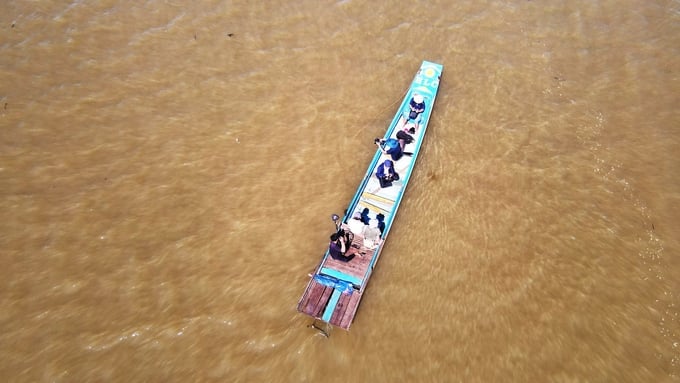
The film crew of Vietnam Agriculture News working in Tonlé Sap Lake.
Chanh, Luom, Ngon and Pham Van Chien are four siblings. Some said their origin was in Tan Chau border district of Tay Ninh province, but they have almost no memory of that place. The painful past of people like Chanh, Luom, Ngon was only vague in their minds, because they grew up together on Tonlé Sap Lake since childhood. Their parents were also "citizens of Tonlé Sap", and although they did not remember exactly what year they came here, it was probably during the traumatized period of the Cambodian genocide.
And perhaps their lives would forever be associated with this lake if the Kingdom of Cambodia did not have the policy to relocate the Vietnamese out of Tonlé Sap. But this policy caused many disturbances to the lives of those people. The fishing villages were cleared, relocated, and erased. The people were forced to "load" ashore. Some were sent to hydroelectric reservoirs in Vietnam, others were sent to work as workers in Vietnamese companies and grow rubber and fruit trees there.
The “Four Cousins of Pham” then started off on their own. A few years ago, Chanh's family and Ngon’s family were able to sell their houses, boats, and then hold each other’s hands down to Kampong Thom to work as rubber workers. Luom and Ngveing Thy Kong got married and gave birth to three children. The oldest one is 19 years old, the youngest one is just five, along with more than 300 households floating around in this fishing village. 5 people live together on a floating house of about twenty-thirty square meters, relying entirely on the trips to cast nets and fish in anxiety, anxious to know when they will be "carried away”.
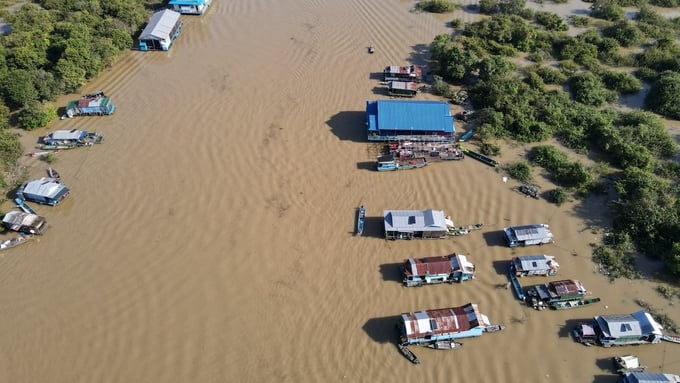
Tonlé Sap - the place of "wandering" Vietnamese.
Their day began early in the morning, Luom with his first son Pham Van Duong, or the second, just ten years old, started their boat and went out to catch some fish. “Nearly 40 years of living on this lake, life has never been this difficult,” Luom gave out a sigh and drove the boat to take us to the fishing area of the Vietnamese.
The luggage of this trip was a nearly-100-m net. According to the father and son, the Cambodian Government's regulations prohibited people from pulling rakes and using electric shocks, only allowing the Vietnamese to fish in unoccupied areas or areas adjacent to the river mouth, so they can only fish with this tiny fish-eyes net.
"This year, the price of petrol and other miscellaneous expenses is also higher. Each trip like this costs me seventy-eight thousand riels, no wonder the more I do it, the more I owe people. That's what you see, morning. Until now, the boat has been running continuously with the net, but it can only get a few pounds of anchovies," said Luom.
The trip ended earlier than usual. They brought back a few fish, Thy Kong then ground and made flour to sell. They might get somewhere around 20,000 riels (roughly 120,000 Vietnamese Dong) if lucky.
Many years ago, Vietnamese and Cambodians in these fishing villages were living among each other. The Cambodians were brought ashore first, then gradually the Vietnameses were isolated, moving to areas with few fish and shrimps like this place.
Fortunately, thanks to knowing how to take care of each other, when met with poverty, one house could support the other. Of course, they struggled through the day but never had anything to accumulate. Things got to the point that in recent years many Vietnamese in Tonlé Sap fishing villages had given up and abandoned their boats, care not of how life would take them.
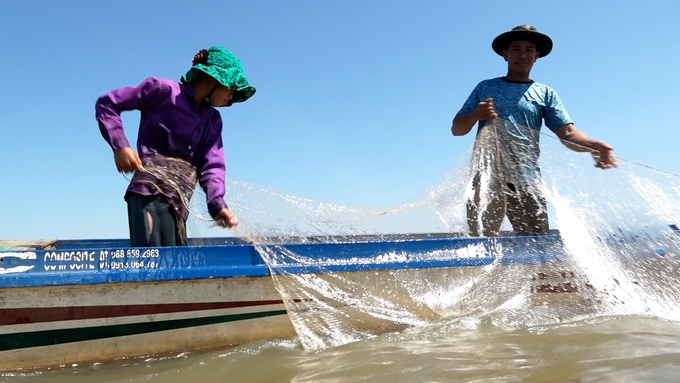
Luom’s family and their net sparse of fish.
While having conversations, we found out that most people wanted to return to Vietnam. In fact many people had already returned but the paperwork was too complicated. There were people who had gone since young while others were born here, witnessing the end of their grandparents' and parents’ life here. No one could certify their origin for them, let alone make identity papers. So if you could come back, you would also be going back and forth undercover. Not to mention that people were too used to living with the river above, going ashore or returning to Vietnam to live is a hard thing to do.
“I heard from people coming here to Vietnam. Because there was no paper, it took a lot of money to cross the border from here and have someone bring you back undercover. The locality of the other side did not have any grounds to make documents, nor did they have a citizen ID, so they could not do household registration. That's why I have to go again. We parents lived a hard life, but we are used to it, but our children, we don’t know what their future holds," said Luom, looking like he was about to cry.
In the middle of the fishing village in Tonlé Sap, there was a school for Vietnamese children living here. One special thing was that this place was both a Great Lake Primary School from Cambodia and a Vietnam Primary School while also being an education and charity center to raise poor children. The teacher in charge, Nguyen Minh Luan, said that this school was founded by the Vietnamese-Cambodian Association. At first the facilities were almost nothing, fortunately, thanks to the 7th Military Region Command of Vietnam, it is now a place to teach and take care of 126 students in Tonlé Sap.
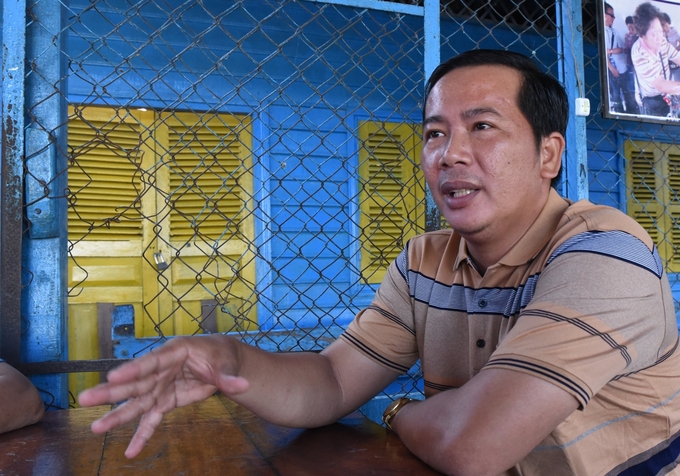
Teacher Nguyen Minh Luan.
Teacher Luan was from Hoa Hiep commune, Tan Bien the border district of Tay Ninh province. He was originally a student at the College for Education in his hometown. In 2007, he followed his uncle to come here to do business and saw that the students were struggling, so he volunteered to stay and taught along with the school's first teacher, Principal Tran Van Tu. One taught in the morning, one in the afternoon. Students were of different ages. They brought every child they could mobilize here to teach, so it was normal for children who are ten years apart in age and still sit in the same class. This special school gradually had 7 teachers, including 4 Vietnamese teachers and 3 Cambodian teachers, but as Luan said, studying here seems to be too much hard work.
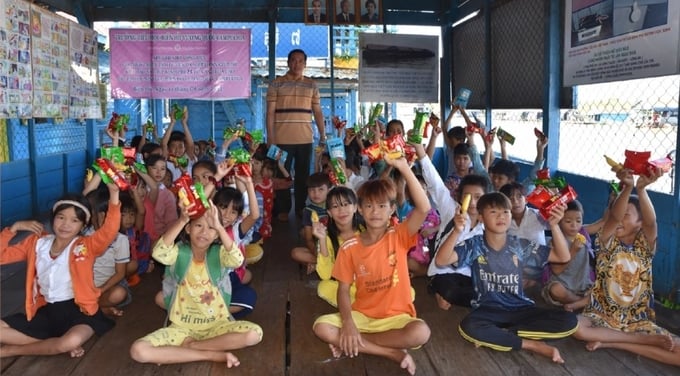
The classroom of Vietnamese children on Tonlé Sap Lake.
"The activities are all based on the support of the community, so difficulties remain abundant. Although the school or the Vietnamese association always creates conditions for children to be able to go up class, they usually dropped out by 5th grade. It is rare for children to study until 8th grade," said Mr. Luan.
Also because the school’s operation mainly relied on community support sources, in the past few years during the Covid-19 epidemic, few tourists came to Tonle Sap, so the support also decreased. Things took a bad turn when Tran Van Tu died and the links to support were often interrupted, making it even harder to mobilize the children to go to school. Life got more and more difficult, so many children did not want to go to school anymore.
None of the children of Luom's family have studied beyond 3rd grade. Duong is the oldest, but he was only at the level of knowing how to read and write. We asked why he did not want to try to study, and he replied with one sentence: ”For what?”.
"Life here is too difficult now, all of our friends are working as workers, I also want to go down with them, I want to go back to Vietnam. It's so hard here, I don't have money to study anymore,” Duong continued.
Luom started the boat engine and took us to the flooded forest next to the village gate, which was also flooded to the top. Under the waves, that lake was the resting place of Vietnamese expatriates who were always longing for their home even after becoming humans of the past. Anyone here who was still alive also instructed their children and grandchildren to try to do business so that later they could bring their parents' ashes back to their hometown, but not many succeeded.
The story of Luom's family haunted our minds all the way back to Vietnam. It planted the thought that perhaps the immense Tonlé Sap could no longer protect and carry the fates of Vietnamese people there. If those who are used to floating on the water felt lost while facing life on the shore, is it possible that their wish to return home is also far away?
When talking about his helpless mother after his father passed away in April 2021, Luom lost his voice, making us reluctant to ask more questions for fear that he would burst into tears. “My mother's name is Do Thi Phuc, from Ta Do hamlet, Tan Thanh commune, Tan Chau district, Tay Ninh province. I would like to ask for a favor. Please go there and find out if there is any way to help us, the Vietnamese in the Great Lake, return to our homeland. We would be very grateful.”
Words carrying dim rays of hope along with the question of how mother is living now or whether there would be scattered families like Luom along the Southwest border, the film crew of Vietnam Agriculture News came to a decision. After crossing the Moc Bai border gate, we went straight to Ta Do hamlet, Tan Thanh commune, Tan Chau district, Tay Ninh province in search of Do Thi Phuc.
Mrs. Phuc is 70 years old this year. Her face is not actually considered old for people of her age. However, her eyes are always filled with sadness. Looking into those eyes, it is not difficult to recognize a life of wandering in hardship.
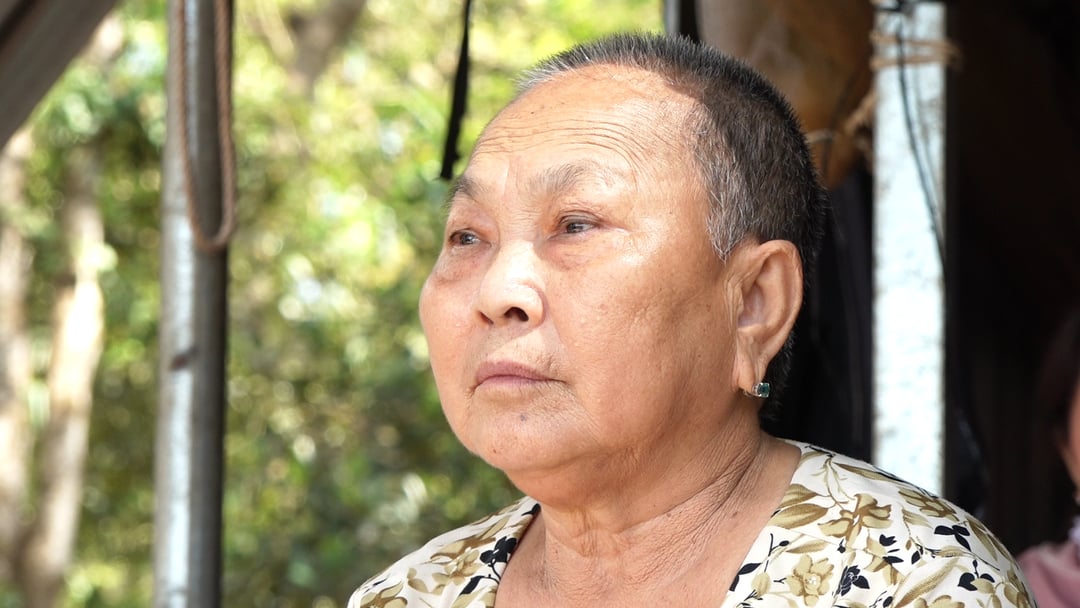
Ms. Do Thi Phuc.
Do Thi Phuc started her story. “I followed my family upstream of the Mekong from Dong Thap to Tonlé Sap since I was a child. When I was at the age of marriage, I met Luom's father, who was also at that place. My husband knew few words, and also took his time to teach the children, but then the struggles to put food on the table was so hard that no one could complete the study to write their names. If you wanted to do any transaction, the only way was to leave a fingerprint. At the beginning of 2020, my husband and I saw that it was no longer easy to survive at the lake, so we rushed to earn some money and went back to Vietnam. All of our nine children had their own families, but it was difficult to help their parents because they were all in different circumstances. The family of 5 girls returned home with their parents. After my husband died, Chien also came here. Only 3 boys were left. Ngon and Chanh married a Cambodian wife so they got a little help from the wife's family, but Luom was very miserable. Poor Luom, I’m just so worried about him".
By pure coincidence, when Ms. Phuc was having a conversation with us, Luom's son Pham Van Duong called from Tonlé Sap to inquire about his grandmother's health. Looking at her exuberant grandson through the video call, her face flashed a rare joy. At the end of the phone call, she turned to us and said in a deep, sad voice: "Now I just dream of having a household registration here, so that Loom's family could fill in the household registration with me and have legal papers. I have sickness all over my body, I will then die, but I don't know if he had the money to go back, or..."
Mrs. Phuc left her sentence unfinished, staring blankly at the dim green Dau Tieng lake in the late afternoon light. In the eyes of that Vietnamese mother, Tonlé Sap Lake felt so far away, and nostalgia is also pointed to somewhere far away.
Translated by Samuel Pham
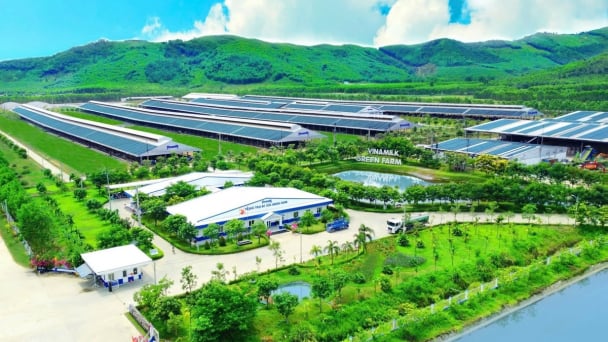
(VAN) Le Hoang Minh, representing Vinamilk, shared the company's experience in energy saving and green energy transition for production at a workshop held during the P4G Summit.
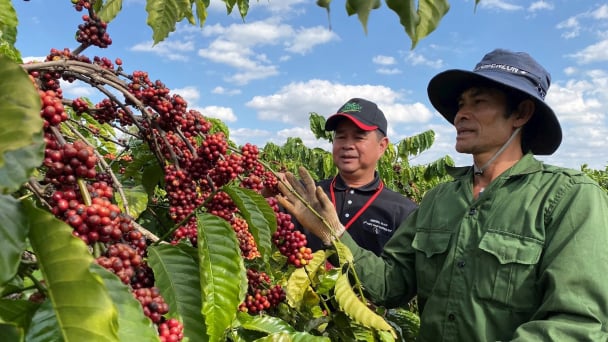
(VAN) Businesses emphasize fairness and equality when integrating social factors into their sustainable development strategies.
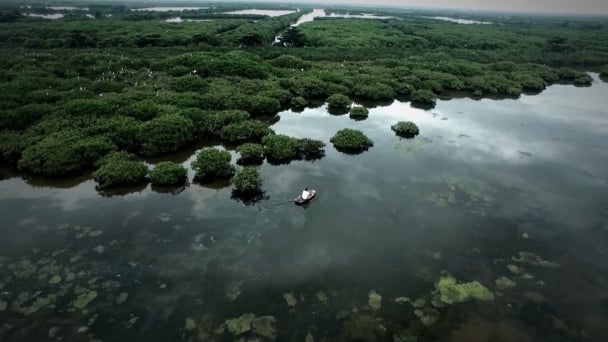
(VAN) French organizations and enterprises propose that Thai Binh province provide potential and long-term cooperation contents related to climate change response and green industrial development.
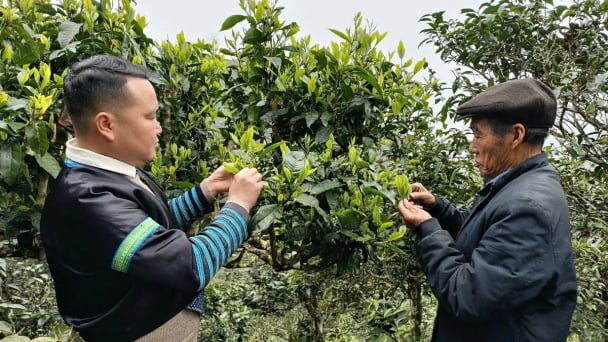
(VAN) Shan Tuyet tea is considered a 'heavenly treasure'. The H'mong people allow the tea to grow naturally, adhering to organic production principles, with the aim of exporting the product.
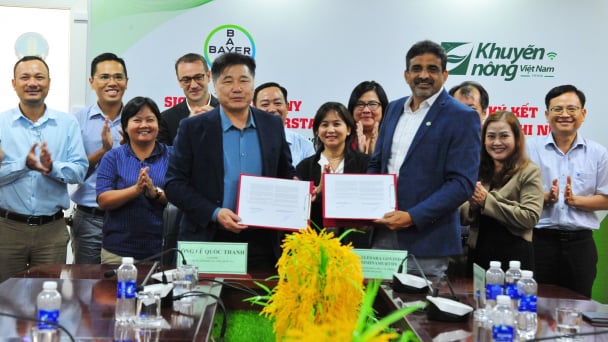
(VAN) Bayer Vietnam and the National Agricultural Extension Center have signed a partnership agreement to expand the development of effective and safe farming models for rice, durian, and coffee.
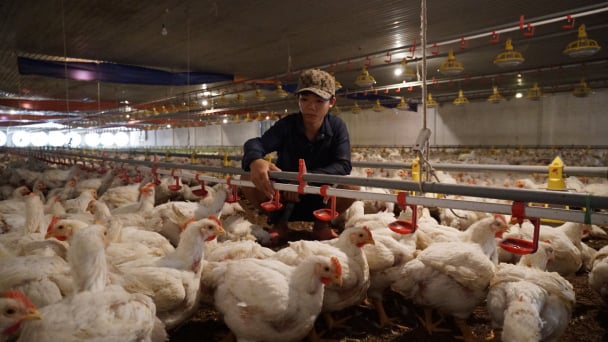
(VAN) Tay Ninh province possesses all the favorable conditions, from natural advantages to geographic location and social harmony, to drive economic development, particularly in attracting investment and advancing modern livestock farming.
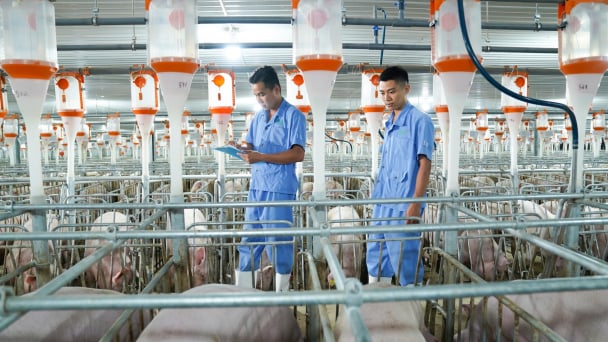
(VAN) Notably, every link in BAF's entire closed livestock value chain Feed - Farm - Food has received international certification.